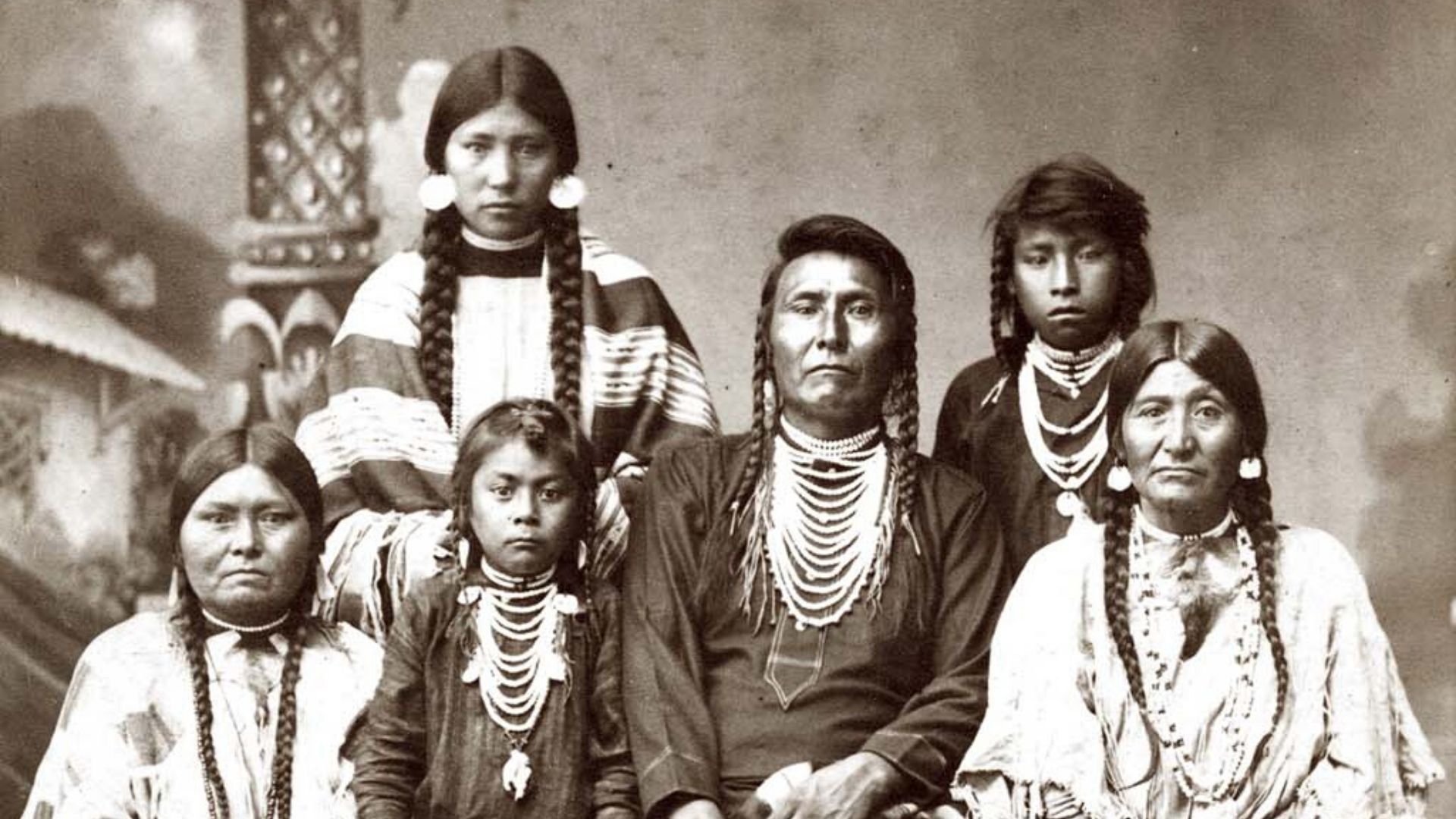Introduction
Learn about the brief but eloquent and heartrending surrender speech of Chief Joseph and learn 10 new words in context in this new Word Power episode from English Plus Podcast.
Audio Podcast
The Surrender Speech of Chief Joseph
It has been called the outstanding example of Native American oratory. Its simplicity and expressiveness stand in sharp contrast to the harangues so commonly delivered by orators of the late nineteenth century.
Chief Joseph had led hundreds of Nez Perce men, women, and children on a 1,500-mile trek over mountains and rivers in the winter of 1877. Driven from their home along the Snake River, these native inhabitants of present-day Idaho and Oregon sought the safety of Canada. However, just a few miles from the Canadian border, the Nez Perce were attacked by United States troops led by General Nelson Appleton Miles.
Facing the total annihilation of his sick and exhausted people, Chief Joseph accepted the promise of General Miles that the Nez Perce would be returned to their home if they surrendered. Chief Joseph spoke the following words to his people:
I am tired of fighting. Our chiefs are killed. Looking Glass is dead. The old men are all dead.
It is the young men who say no and yes. He who led the young men is dead. It is cold and we have no blankets. The little children are freezing to death. My people, some of them have run away to the hills and have no blankets—no food. No one knows where they are—perhaps they are freezing to death.
I want to have time to look for my children and see how many of them I can find. Maybe I shall find them among the dead. Hear me, my chiefs, I am tired, my heart is sad and sick. From where the sun now stands, I will fight no more forever.
This brief but eloquent speech by Chief Joseph is considered one of the most moving and memorable in American literature. In a few sincere and moving sentences, it succinctly expressed the suffering and anguish of the Native American and the ferocity of war.
In the end, General Miles’s promise was only a ruse. Chief Joseph and the surviving Nez Perce were not allowed to return. Until his death in 1904, Chief Joseph petitioned the U.S. government repeatedly to allow the Nez Perce to return to their ancestral home, but his pleas were met with indifference. The Nez Perce never saw their home again.
Unlock Keywords
Interactive Activities
Flashcards
Learning
Matching
Spelling
Test
Crossword Puzzle
PDF Practice Worksheet
You can find the premium PDF worksheet on Patreon.
Become a patron today and enjoy all premium episodes, series and other exclusive benefits.











0 Comments